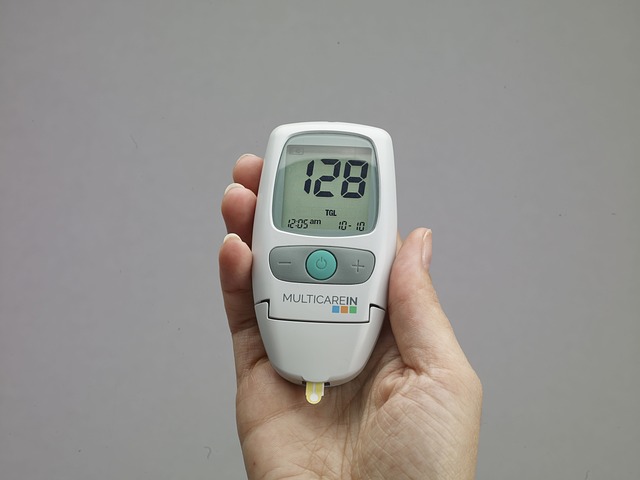Liver Function Tests (LFTs) are essential in the UK for evaluating liver health, especially through routine cholesterol blood tests that measure LDL and HDL levels. Enzymes like ALT and AST, as well as bilirubin, indicate liver issues like inflammation or damage. Normal ranges vary by age and sex (optimal LDL below 4 mmol/L, protective HDL above 1.4 mmol/L). Healthcare professionals use LFTs based on clinical judgment, symptoms, and risk factors like obesity or alcohol consumption for early detection and effective management of liver diseases and cholesterol levels.
Liver function tests (LFTs) are essential tools for medical professionals, offering insights into liver health. This comprehensive guide delves into the world of LFTs, focusing on the UK Cholesterol Blood Test—its procedure, normal ranges, and interpretations. Understanding these measurements is crucial for diagnosing liver conditions. We explore when and how to order LFTs, highlighting their clinical significance in assessing and managing patient liver health, especially in the context of UK cholesterol levels.
- Understanding Liver Function Tests: What They Measure and Why
- UK Cholesterol Blood Test: Procedure, Normal Ranges, and Interpretations for Medical Professionals
- Clinical Significance: When and How to Order Liver Function Tests
Understanding Liver Function Tests: What They Measure and Why
Liver function tests (LFTs) are a series of blood tests that evaluate how well your liver is working. These tests measure various enzymes and proteins produced by the liver, helping medical professionals assess its health and detect potential issues. Understanding LFTs is crucial in the UK, especially when it comes to cholesterol management through a cholesterol blood test.
LFTs can identify elevated levels of specific enzymes, like alanine aminotransferase (ALT) and aspartate aminotransferase (AST), which may indicate liver damage or inflammation. They also check for bilirubin, a yellow pigment produced when red blood cells break down, to evaluate bile production and flow. These tests are essential tools in diagnosing liver diseases, monitoring treatment effectiveness, and guiding management strategies, including cholesterol control, as high cholesterol levels can contribute to liver strain.
UK Cholesterol Blood Test: Procedure, Normal Ranges, and Interpretations for Medical Professionals
The UK Cholesterol Blood Test is a crucial diagnostic tool for medical professionals, offering insights into an individual’s cardiovascular health. This test measures the levels of low-density lipoprotein (LDL) and high-density lipoprotein (HDL) cholesterol in the blood. The procedure involves taking a small sample of blood, typically from a vein in the arm, which is then analyzed in a laboratory.
Normal ranges for cholesterol levels vary based on age and sex. For adults, an optimal LDL cholesterol level should be below 4 mmol/L, while HDL levels above 1.4 mmol/L are considered protective against heart disease. Interpretations of results fall into categories: optimal, near optimal, borderline high, high, very high. Medical professionals use these ranges to assess a patient’s risk for cardiovascular issues and guide treatment plans accordingly, emphasizing lifestyle changes or medication if necessary.
Clinical Significance: When and How to Order Liver Function Tests
Liver function tests (LFTs) are crucial diagnostic tools for medical professionals, providing insights into the health and functionality of the liver. In the UK, cholesterol blood tests often form part of routine screenings or patient assessments, with elevated levels of certain enzymes indicating potential liver issues. These tests are particularly valuable in identifying early signs of liver damage, such as hepatitis or cirrhosis, allowing for timely interventions and management strategies.
The decision to order LFTs should be based on clinical judgment, taking into account the patient’s medical history, symptoms, and risk factors. In many cases, healthcare providers may recommend these tests when patients present with symptoms like jaundice, abdominal pain, or enlarged liver enzymes detected through a routine blood panel, including UK cholesterol blood tests. Additionally, LFTs are commonly ordered for individuals with known liver diseases, those taking medications that can affect the liver, or patients at risk due to obesity, diabetes, or excessive alcohol consumption.
Liver function tests, including the UK cholesterol blood test, are invaluable tools for medical professionals in diagnosing and managing liver health. By understanding what these tests measure and interpreting the results accurately, healthcare providers can identify potential issues early on, such as elevated cholesterol levels, which may lead to further investigation and appropriate treatment. The clinical significance of these tests lies in their ability to provide insights into overall liver function, enabling medical professionals to make informed decisions tailored to each patient’s unique needs.
